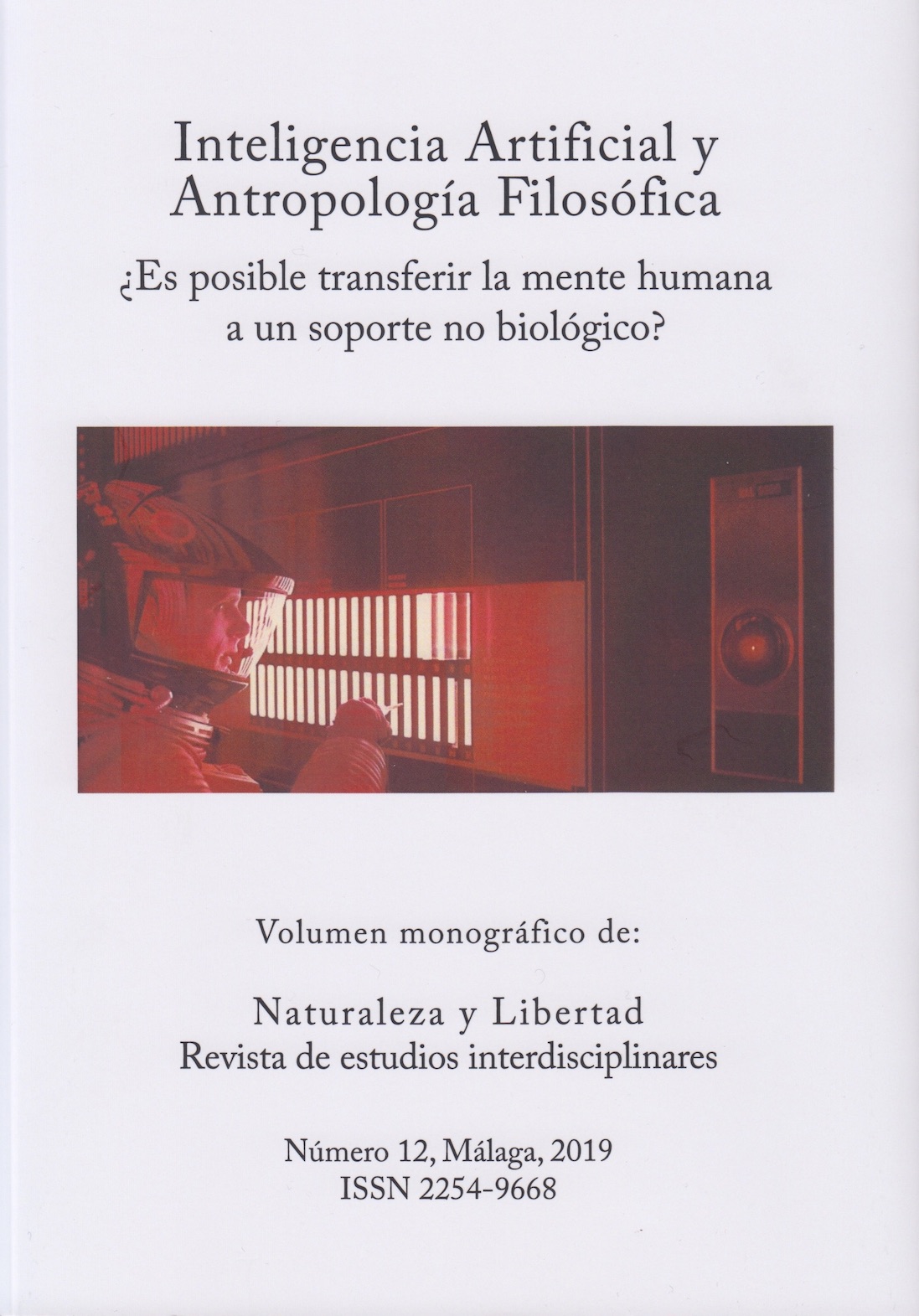El futuro del hombre. ¿Contienen las propuestas del transhumanismo una respuesta satisfactoria?
DOI:
https://doi.org/10.24310/NATyLIB.2019.v0i12.6267Keywords:
hombre, futuro, muerte, especie humana, transhumanismo,Abstract
El artículo expone la evolución de las expectativas acerca del futuro y destino final del hombre tanto a nivel individual como colectivo. Hasta el siglo XVIII predominaban las preocupaciones referidas al destino personal de cada hombre y el significado de la muerte. Tras las revoluciones que acabaron con el antiguo régimen, empezó a dominar el interés por el futuro de la humanidad en su conjunto. Desde mediados del siglo XX hay una preocupación creciente ante el peligro de que la especie humana desaparezca y sea suplantada por otro tipo de entidades, tal vez desarrolladas por el propio hombre. El transhumanismo se ha presentado como una respuesta, basada en la ciencia, a las ansias de supervivencia y mejora del hombre. No obstante, sus propuestas adolecen de varias debilidades, algunas de ellas posiblemente irreparables.Downloads
Metrics
Downloads
Published
How to Cite
Issue
Section
License
Those authors who have publications with this journal, accept the following terms:
1. Copyright and licensing information are clearly described on the journal’s web site: all content published in Naturaleza y Libertad is open acces without limit, and are subject to the Attribution-NonCommercial-ShareAlike 4.0 International (CC BY-NC-SA 4.0) license. The full text of which can be consulted at https://creativecommons.org/licenses/by-nc-sa/4.0/
2. It is the responsibility of the authors to obtain the necessary permissions for the images that are subject to copyright. The authors whose contributions are accepted for publication in this journal will retain the non-exclusive right to use their contributions for academic, research and educational purposes, including self-archiving or deposit in open access repositories of any kind. The electronic edition of this magazine is edited by the Editorial de la University of Malaga (UmaEditorial), being necessary to cite the origin in any partial or total reproduction.
3. This journal allows and encourages authors to publish papers on their personal websites or in institutional repositories, both before and after their publication in this journal, as long as they provide bibliographic information that accredits, if applicable, your posting on it.
4. In no case will anonymous papers be published.





18.png)













